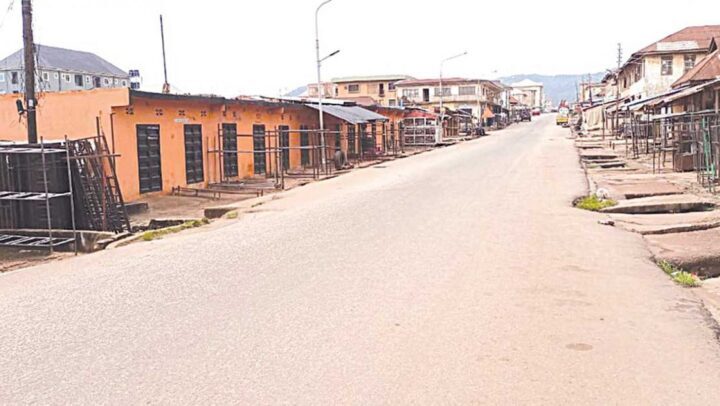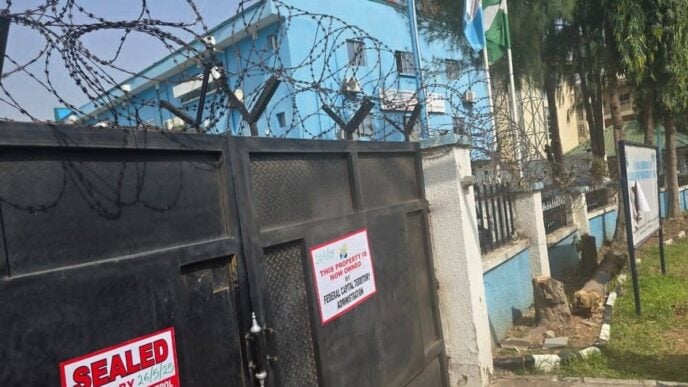A photograph of an empty street depicting compliance with a sit-at-home order in Enugu in 2023
South-east Nigeria has lost an estimated N7.6 trillion in four years due to the persistent enforcement of sit-at-home orders by the Indigenous People of Biafra (IPOB), according to a new report by SBM Intelligence.
The report, titled ‘Four Years of Disruption’, detailed how a protest initially intended to demand the release of IPOB leader, Nnamdi Kanu, has evolved into a prolonged economic and humanitarian crisis, marked by violence, fear, and collapsed livelihoods.
In most parts of Abia, Enugu, Imo, Ebonyi, and Anambra states (which make up the south-east), SBM said Mondays are now characterised by inactivity, with empty streets and closed businesses.
This inactivity, the report said, is driven not only by voluntary compliance but also by violent enforcement against those who defy the order.
Advertisement
“The sit-at-home protests, enforced by IPOB since 2021, have transformed from a symbolic act of dissent into a protracted crisis with devastating socioeconomic and security consequences for Southeast Nigeria,” the report reads.
“The region has suffered staggering losses, including N7.6 trillion in economic damage, 776 fatalities, and systemic disruptions to education, governance, and livelihoods.
“Initially rooted in legitimate grievances over marginalisation and the detention of Nnamdi Kanu, the movement has been hijacked by violence, criminality, and internal fragmentation, eroding public support and deepening instability.”
Advertisement
The SBM report said micro businesses lose about N4.6 trillion annually, while transporters forfeit between N10 billion and N13 billion every Monday when the order is enforced.
The intelligence firm said IPOB had declared a weekly Monday shutdown across the south-east in 2021, with initial compliance driven largely by solidarity.
“These losses stem from widespread market closures, disrupted supply chains, and the inability of businesses, particularly SMEs, to operate effectively,” the report said.
“Micro-businesses have been particularly hard-hit, with annual losses reported at approximately N4.6 trillion due to the recurring sit-at-home days.
Advertisement
“The impact is evident in both urban and rural areas. Large commercial hubs like Onitsha Main Market, one of Africa’s largest, have been repeatedly forced to close, resulting in missed transactions and financial strain for traders and consumers.”
The report also documented 776 deaths and 332 violent incidents between 2021 and 2025, with Imo and Anambra states accounting for more than half of the fatalities.
IPOB’s armed wing — the Eastern Security Network (ESN) — and other criminal gangs have been blamed for enforcing the sit-at-home order through arson, kidnappings, and targeted killings, according to SBM Intelligence.
The organisation said government crackdowns and enforcement measures have attempted to restore normalcy in states such as Enugu and Ebonyi, noting that Peter Mbah, governor of Enugu, imposed penalties for compliance with the sit-at-home, contributing to a tentative return to normalcy in Enugu.
Advertisement












